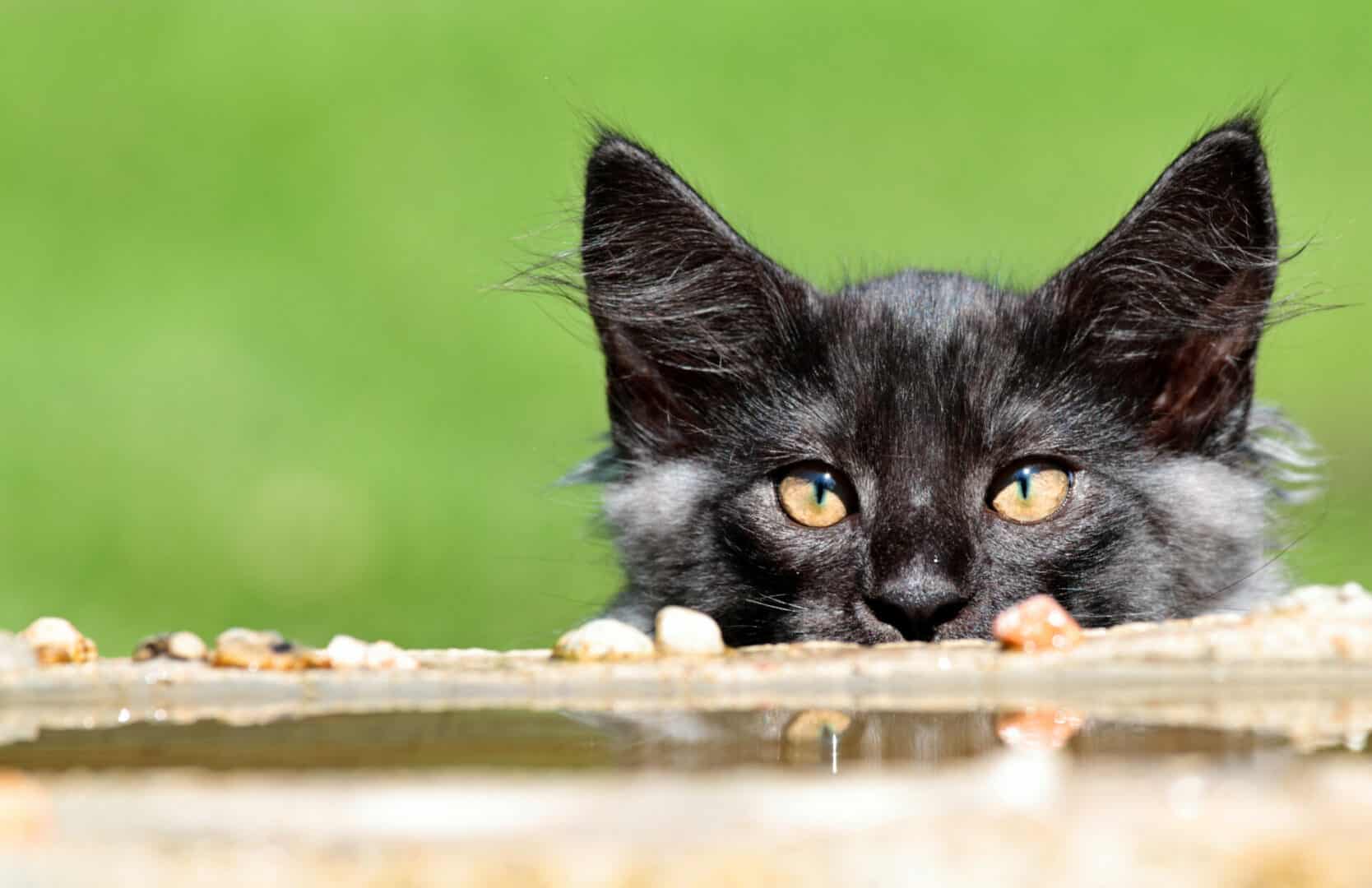Summer is a great time to explore your neighborhood with your pet cat and go on a walk together. But while the perfect summer sky presents opportunities for gallivanting, it can also pose threats to your fur baby’s health and well-being. To ensure that your feline friend will remain in perfect health while enjoying the season, you need to be aware of the health issues that your cat can be prone to this time of the year. Here are some of them:
Insect Stings
Being out and about increases your feline friend’s chances of coming face to face with wild insects. If provoked, these critters could end up stinging your kitty, leading to a lot of pain, swelling, and—in some cases—difficulty breathing.
To protect your cat from insects that might hurt or latch on to them, you can make your kitty wear custom pet merchandise such as protective pet apparel or collars with bells that alert you of your cat’s movements and whereabouts. Read here on Cattitude Daily to learn what to do if your cat gets stung by a bee.
Flea and Tick Bites
Ticks and fleas are blood-sucking parasites that tend to come out during warmer months. Cats often consider such parasites a mild annoyance, but these nasty bugs can be fatal in large numbers. Young kittens, in particular, are vulnerable to severe anemia caused by a heavy infestation of fleas.
Additionally, you need to be wary of fleas transferring onto your skin. Although fleas generally don’t stay alive for a long time on human bodies, they can still bite you and try to feed on your blood.
That said, it’s vital for you to regularly monitor your cat for signs of flea and tick infestations. Aside from spotting these parasites crawling on your cat’s body, you should watch out for clusters of pink or red spots and patches of scabs and flakes on your pet’s skin. Also, pay attention if your cat is exhibiting unusual behaviors like aggressive scratching and excessive licking.
Sunburn
Sunburn or solar dermatitis occurs when the skin experiences prolonged exposure to direct or indirect sunlight. Sunburn in cats could lead to ear and nose cancer, especially for felines with light-colored fur. Most of the time, cats get feline solar dermatitis by hanging around in preferred “hot spots”—that is, spots near windows that let a lot of sunlight in.
To keep your cat from getting sunburnt, try persuading your fur baby to rest in a place other their favorite window spots. This is especially important when the sun is at its peak from 10 A.M. to 4 P.M. If you haven’t done so yet, consider installing window treatments such as blinds, shades, or curtains that you can use to block out the sunlight during the day. It would also be a good idea to ask your vet if they can recommend a non-toxic, cat-safe sunscreen that can provide your pet’s skin with extra sun protection.
Heatstroke
Like dogs, cats don’t sweat as much as humans do. Rather, they lick their coats to cool down and depend on the evaporating saliva on their fur to moderate their temperature. But sometimes, doing this isn’t enough to keep a cat’s body temperature low, especially during the summer.
Frequent panting, rapid breathing, drooling, a quickened pulse, and a temperature of over 104°F are all signs that your cat may suffer from heatstroke. Other signs of heatstroke include lethargy, difficulty walking, and vomiting. If left unattended in this condition, your cat may collapse and fall into a coma.
If you sense that your cat is overheating, you can try bathing them in cool—not cold—water. During this time, focus on thoroughly washing your cat’s ears, paws, and abdomen. Additionally, you can turn on a fan and keep your cat within the air’s reach to cool them down during the hottest times of the day. If your cat is already experiencing lethargy or difficulty moving, you should consider this an emergency and contact a vet immediately.
Dehydration and Water-Related Diseases
Of course, the scorching weather gives cats the urge to drink water more frequently. If you have an indoor cat, ensure a steady supply of fresh water to prevent your cat from becoming dehydrated.
If you tend to take your cat outside during the summer months, you need to be mindful of the quality of the water they drink. Outdoor water sources (such as ponds) may contain harmful bacteria and algae that can cause your pet to fall ill. Make sure to keep your cat away from stagnant water and always be mindful of where your cat is and what they’re eating or drinking.
Shedding
Cats have a natural tendency to shed more of their fur during warm weather months. This means that, during the summer, they tend to ingest more fur when cleaning themselves up. The loose fur then becomes hairballs which, in turn, can cause your cat to experience vomiting and throat blockages.
To prevent hairball-related issues, experts recommend that owners regularly comb, bathe, and groom their cats. Doing so removes the excess fur, preventing your cat from ingesting too much of it.
Keeping Your Cat Safe for the Summer
The hot weather and increased environmental exposure can make your cat more vulnerable to falling ill in the summer. Knowing what their common health issues are during this season can help you take active steps in ensuring your cat’s health and wellbeing. If you’re ready for these possible issues, you and your cat can easily make the most of the fun the summer days can bring.







